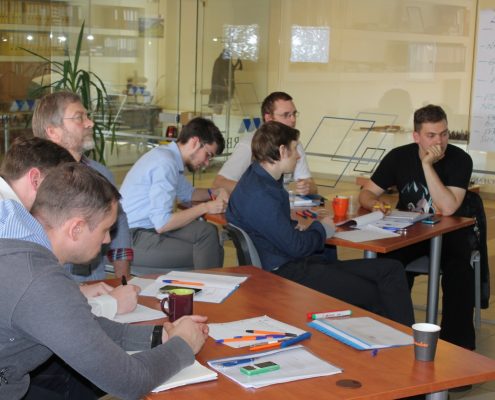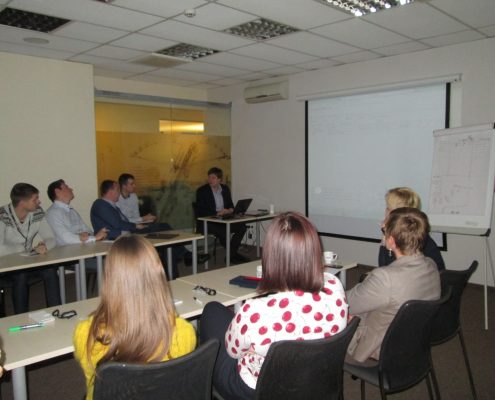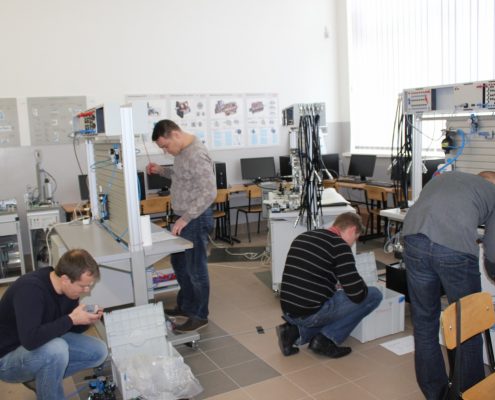INJECTION MOLDING TECHNOLOGY TRAINING
• Thermoplastic resin and elastomer, material preparation
• Moulding technology
• High tech material and special machinery
• Quality assurance, process monitoring
We suggest to adopt practices and absorb knowledge of Lithuanian and foreign (German, Slovenian, Russian, UK, Croatian, etc.) professionals from research institutions, technology centers, Digital Innovation Hubs and engineering industries.
• Thermoplastic resin and elastomer, material preparation
• Moulding technology
• High tech material and special machinery
• Quality assurance, process monitoring
• Mechatronic systems (structure, elements, symbols, sensors)
• Pneumatic and electropneumatic systems (structure, control methods, design of electropneumatic systems)
• Hydraulic systems (structure, control devices, diagnostics)
• Electrohydraulic systems (structure, sensors, desigin of electrohydraulic systems)
• Industry 4.0 concept
• Digitalization basics
• Big data
• Industry 4.0 matrix
• Research and development 4.0
• Manufacturing 4.0
• Logistics 4.0
• Business model innovation 4.0
• Ecosystems 4.0
• Robotics 4.0
• Employment and the workplace 4.0
• Change management for Industry 4.0
• IT security
• Management of digital process implementation
• Drawings, their reading and design
• Possibilities of using metals in industry, metalworking: processing and recycling technologies and their future prospects
• Practice sessions: aspects of metalworking: laser machining, water jet and plasma cutting, bending, welding, etc.)
• Possibilities of using plastics in industry, plastic processing
• Practical learning: aspects of plastic processing (pressing, vacuum forming, extrusion, film production)
• Cutting process
• Product types
• Key machinery used in the cutting process
• Key machining processes used
• Standards for drawing design
• Description of the part component dimensions and their deviations
• Quality assessment of part surfaces
• Assessment of materials used in manufacturing machinery, their properties and workability
• Tool materials and wear resistant coatings. Principles of tool selection
• Types of tool holders, their use and selection
• Setting tool dimensions
• Geometry of the cutting tool
• Technological process of sheet metal cutting with gas and plasma
• Technological process of sheet metal cutting with abrasive water jet
• Organizing technological measurement and quality control processes of (practical examples of companies)
• Innovations and development trends in measurement and quality control technologies
• Measurement of technological parameters of mechanical parts and assemblies
• Selection and attachment of tools (turning blades), setting of operating modes for turning operations, control of the cutting tool process with a Zoller Smile measuring and control device
• Development of detailed turning control programs, turning process simulation, sequence analysis of technological operations of the turning process
• Simulation of turning processes with MTS software
• Selection of milling tools and preparing them for operation, setting of milling operation modes
• Control of the cutting tool parameters using a Zoller Smile measuring and control device
• Development of a program for part milling control with ISO and Siemens Sinumeric Shopmill codes
• Simulation of the technological process of part milling with MTS software
• Digital twins, their application in welding and assembly processes
• Use of digital twin technologies for designing manufacturing lines; research
• Zero defect manufacturing and circular economy
• Simulation software for welding process and assembly










